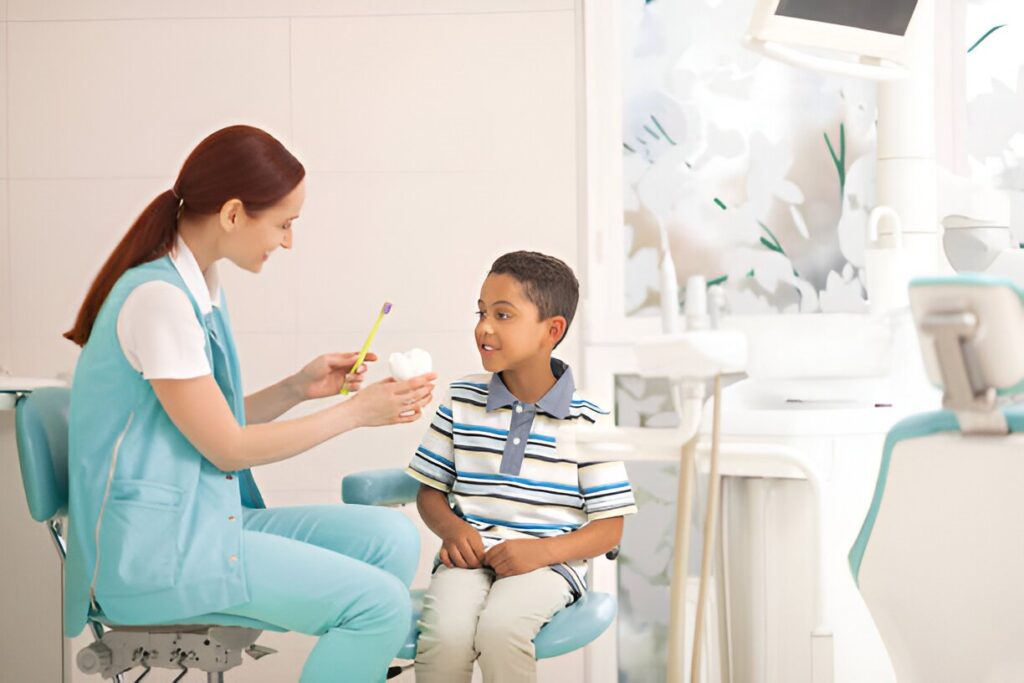Table of Contents
- The Importance of Early Dental Care
- Making Dental Care Fun for Kids
- Building Daily Dental Habits
- Choosing Kid-Friendly Dental Products
- Handling Dental Visit Fears
- The Role of Nutrition in Dental Health
- When to Seek Professional Help
- Conclusion
The Importance of Early Dental Care
Starting dental care early is essential to lay the foundation for a lifetime of healthy teeth and gums. Regular visits to a kids dentist in Jacksonville can ensure that any early signs of tooth decay or other problems are caught and treated promptly. According to the Centers for Disease Control and Prevention, early childhood dental care can prevent cavities and other oral health issues, setting the stage for lifelong oral health. Early dental visits can also help children become accustomed to the dentist, making future appointments more accessible and less stressful.
Making Dental Care Fun for Kids
One way to ensure that your child maintains good dental hygiene is by making the process enjoyable. Consider using colorful toothbrushes, fun-flavored toothpaste, and engaging dental care apps or games. This makes brushing and flossing seem less like a chore and more like an exciting part of their day. For example, some toothbrushes play music or light up while in use, encouraging kids to brush for the recommended two minutes. Some parents find that letting kids pick out their dental supplies fosters a sense of ownership and enthusiasm for their dental care routine.
Building Daily Dental Habits
When it comes to dental care, consistency is essential. Good habits can be ingrained by creating a daily routine that includes brushing and flossing. Use charts or incentives to motivate your child to follow their dental routine. Pediatric dentists advise brushing for two minutes twice daily and flossing once daily. This can be made more engaging for kids by setting a timer or playing a quick song, transforming chores into enjoyable activities. Reward systems like sticker charts can be motivating, helping children to see the importance of consistency and effort in maintaining their dental health.
Choosing Kid-Friendly Dental Products
Not all dental products are created equal, especially for children. Look for toothbrushes with soft bristles and toothpaste that contain fluoride but are safe for kids to swallow. Using appropriate products designed for children’s smaller mouths and tender gums can prevent discomfort and ensure effective cleaning. Brands that display the American Dental Association (ADA) Seal of Acceptance are generally reliable. Some toothpastes are specially formulated for children and come in kid-friendly flavors like bubblegum or strawberry, making the brushing experience more enjoyable.
Handling Dental Visit Fears
Many children fear visiting the dentist. Preparing them ahead of time by explaining what to expect can significantly reduce anxiety. Reading books about friendly dental visits or watching educational videos can also help demystify the experience. Choosing a pediatric dentist specializing in making children feel comfortable is also beneficial. Some offices offer a welcoming environment with toys, books, and friendly décor that can help distract and reassure kids during their visit. Pediatric dentists are educated in child psychology and anxiety-reduction methods to make dental visits enjoyable for kids.
The Role of Nutrition in Dental Health
Maintaining dental health is significantly influenced by eating a balanced diet. Foods rich in calcium and vitamins help strengthen teeth and gums. Additionally, reducing sugary snacks and drinks can prevent cavities. Plenty of water, dairy products, leafy greens, and lean proteins can support your child’s oral hygiene routine. Healthy snacks like cheese, fruits, and vegetables can be regularly included to support strong teeth and gums and improve their general health.
When to Seek Professional Help
While regular home care is crucial, professional dental visits are equally important. Plan routine cleanings and examinations to identify possible problems early. Early treatment can help avoid later, more serious dental problems. Pediatric dentists can provide additional guidance tailored to your child’s needs, from treating teething pain to orthodontic assessments. It’s recommended that children see a dentist by their first birthday and continue regular visits every six months. Early visits can also teach children the value of dental visits, making them a regular part of their healthcare routine.
Conclusion
Creating a kid-friendly dental care routine is essential for establishing lifelong healthy habits. Early dental care is crucial in preventing tooth decay and helping children become comfortable with dental visits. Making dental care fun using colorful toothbrushes, fun-flavored toothpaste, and engaging activities can encourage children to enjoy their oral hygiene routine. Consistency in brushing and flossing is vital, and using rewards can help motivate kids to maintain their dental habits. Choosing the right dental products for children and reducing sugary foods can further support good oral health. Ultimately, routine dental examinations are required to monitor and treat problems early on, keeping your child’s smile healthy and radiant.


